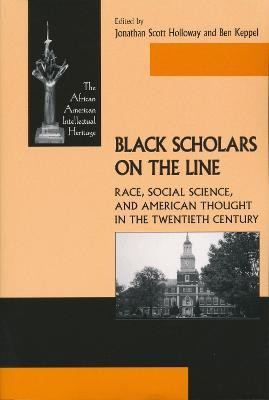Black Scholars on the Line(English, Paperback, unknown)
Quick Overview
Product Price Comparison
Black Scholars on the Line: Race, Social Science, and American Thought in the Twentieth Century explores the development of American social science by highlighting the contributions of those scholars who were both students and objects of a segregated society. The book asks how segregation has influenced, and continues to influence, the development of American social thought and social science scholarship. Jonathan Scott Holloway and Ben Keppel present the work of thirty-one black social scientists whose work was published between the rise of the Tuskegee model of higher education and the end of the Black Power Era. Even though they had to fashion their careers outside of their respective fields' mainstream, the intellectuals featured here produced scholarship that helped define the contours of the social sciences as they evolved over the course of the twentieth century. Theirs was the work of pioneers, now for the first time gathered in one anthology. After a comprehensive introduction and survey of the selections to follow, Holloway and Keppel present the founding parents of African American social science, including excerpts from Alexander Crummell, Anna Julia Cooper, and others. They then examine contributions from the first real generation of professionally trained black scholars such as W. E. B. Du Bois. The interactions between cultural production and social scientific knowledge are examined through the work of various scholars, including Alain Locke and Zora Neale Hurston. The volume then explores the scholarship produced by the leading progressive social scientists of the day on issues of race and class and examines social scientific scholarship that put African American struggles in an international context. The book concludes by presenting the scholarship of, among others, Hylan Lewis, Joyce Ladner, and William Julius Wilson, which most effectively highlights the complex state of "raced" social science thought during the age of desegregation in academia.


